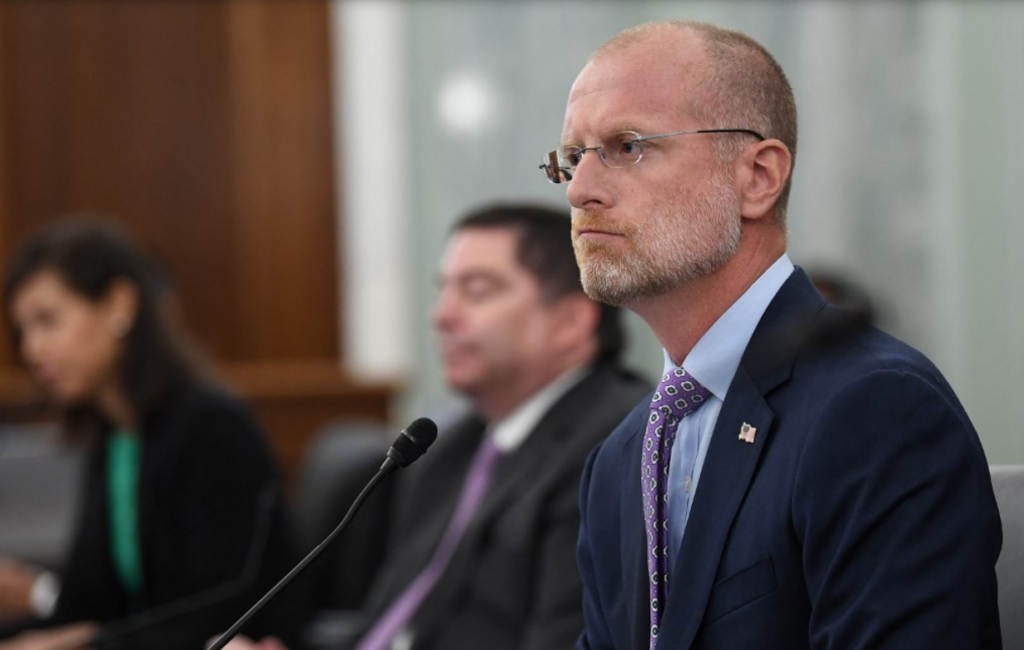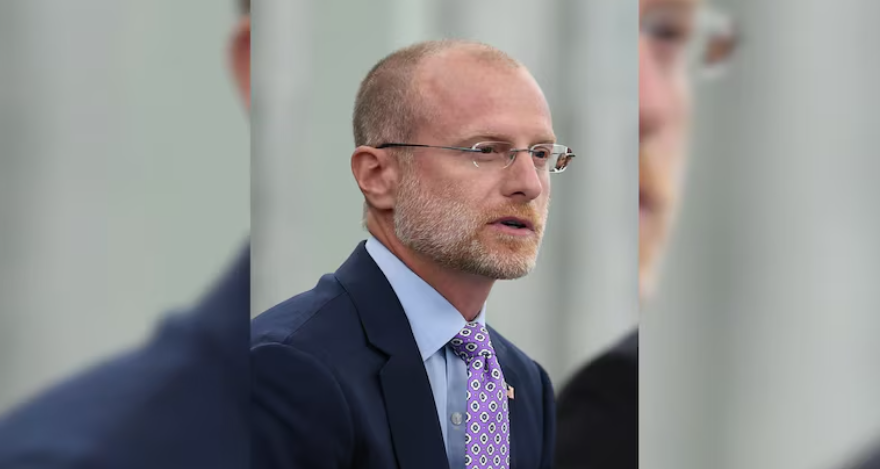Brendan Carr FCC Appointment: Trump Picks Tech Critic to Lead Free Speech Battle
In a move stirring both support and controversy, U.S. President-elect Donald Trump has officially selected Republican Brendan Carr to lead the Federal Communications Commission (FCC). Known for his fierce criticism of big tech and strong alliance with Elon Musk, Carr’s appointment signals a clear shift in how the new administration plans to tackle free speech and internet regulation.
Trump didn’t hold back in his praise for Brendan Carr FCC leadership, calling him a “warrior for Free Speech” in a statement released Sunday. “Carr has fought against the regulatory lawfare that has stifled Americans’ freedoms,” Trump said. “He will end the regulatory onslaught that has been crippling America’s job creators and innovators, and ensure that the FCC delivers for rural America.”

Carr responded on X (formerly Twitter), a platform owned by Elon Musk, expressing gratitude for the appointment. “I’m humbled and honored,” he wrote. In another post, he added, “We must dismantle the censorship cartel and restore free speech rights for everyday Americans.” These statements offer a glimpse into the bold and transformative approach Brendan Carr FCC leadership may bring.
Currently, Carr is already the senior Republican on the FCC, an independent agency overseeing everything from TV and radio licenses to home internet pricing. His promotion to chairman has long been speculated, and his views have consistently aligned with Trump’s aggressive regulatory rollback agenda.
The connection between Brendan Carr FCC and Elon Musk has also raised eyebrows. Carr has stood by Musk during regulatory disputes, particularly one involving Starlink—Musk’s satellite internet company. In 2020, the FCC, under Democratic leadership, awarded Starlink an $885 million grant to expand rural internet coverage. But the grant was later revoked when the agency claimed Starlink failed to prove it could reach enough remote homes.
Carr didn’t hold back in criticizing the decision. Writing in The Wall Street Journal, he labeled the revocation as “regulatory lawfare” aimed at Musk. According to him, it was an example of political bias, targeting one of the left’s least favorite tech moguls.

His stance has drawn attention not just because of its sharp tone, but because it showcases how the Brendan Carr FCC agenda may unfold: less regulation, more open internet access, and unwavering support for free speech—even if it means clashing with major networks and regulators.
Trump’s pick of Brendan Carr FCC also intersects with his broader goal of holding broadcasters accountable. Throughout the 2024 campaign, Trump slammed media giants like CBS, NBC, and ABC, alleging political bias. He even went as far as suggesting that CBS’s license should be revoked after its program “60 Minutes” aired an interview with his Democratic opponent Kamala Harris. Trump had declined to participate in a similar interview, but claimed bias nonetheless.
This aggressive posture is echoed in Carr’s policy vision, as outlined in the Heritage Foundation’s Project 2025 document. Carr authored a chapter focusing on FCC reform, where he emphasized the need to rein in big tech companies like Meta, Google, and Apple. His four priorities were clear: hold tech companies accountable, bolster national security, encourage economic growth, and bring transparency to the FCC.
Supporters of Brendan Carr FCC leadership say his appointment comes at a crucial time, when debates over free speech, censorship, and digital monopolies dominate the national discourse. Critics, however, worry that his hardline stance could turn the FCC into a political tool.
Still, there’s no denying the influence Carr brings to the table. With backing from Trump and Elon Musk, Brendan Carr FCC is poised to be one of the most vocal and powerful figures in the fight over internet freedom and media regulation. Whether he delivers on his promise to restore free speech and promote innovation—or stirs further controversy—remains to be seen.
For now, the spotlight is firmly on Brendan Carr FCC and the sweeping changes he may usher in during this new era of U.S. communications policy.
